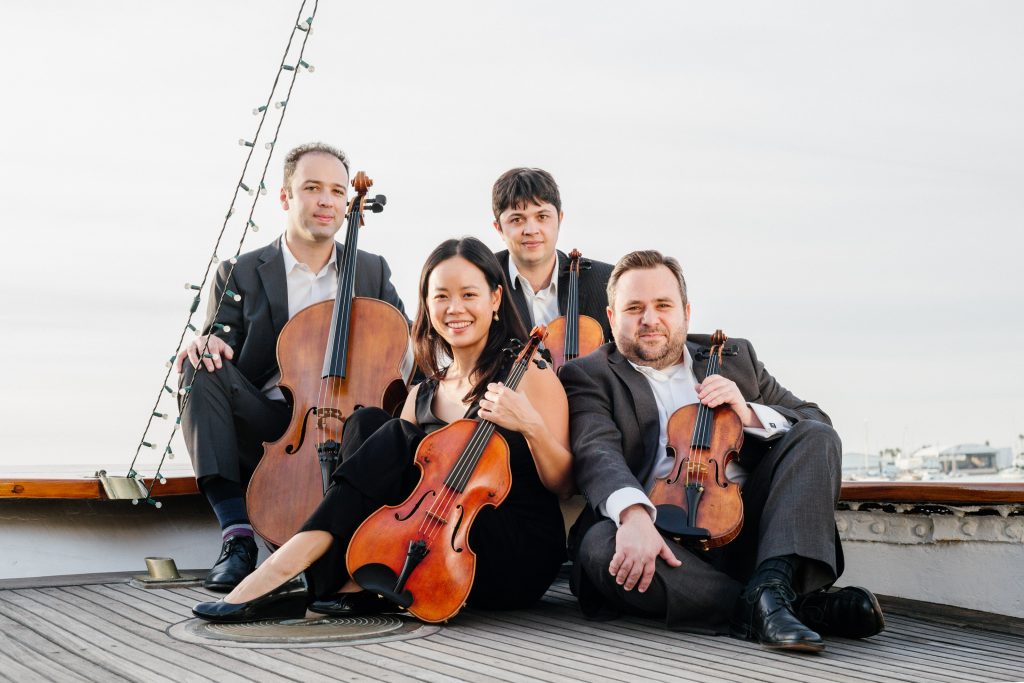Hausmann Quartet Revives the Haydn Voyages Series with Spirited Virtual Concert
Sunday afternoon’s balmy weather offered ideal conditions for enjoying the Hausmann Quartet at the San Diego Maritime Museum on San Diego Bay. What could compare with experiencing a performance of their ardent music and then strolling over to Little Italy for a sumptuous dinner?

Hausmann Quartet: (from left) Alex Greenbaum, Angela Choong, Isaac Allen, Bram Goldstein [photo (c.) Samantha Zauscher]
For this Sunday’s hour-long online concert, some aspects proved reassuringly consistent: Hausmann’s warm sonority and polished performance; unusual, engaging repertory complementing the main Haydn quartet, including a 2017 work by the young Iranian composer Aftab Darvishi, and insightful pre-concert comments from musicologist Derek Katz about the program’s other composer, Chevalier de Saint-Georges.
Darvishi’s “Daughters of Sol,” a single movement work written for the Kronos Quartet, is a mysterious, at times meditative, piece built on slowly moving counterpoint that reveals constantly shifting, modal harmonies. First violinist Isaac Allen confidently led with burnished cantorial solos, frequently garnished with mysterious trills or agitated commentary from violist Angela Choong. Gorgeous is a rarely appropriate adjective for serious new music, but Hausmann’s deft account of Darvishi’s “Daughters of Sol” earned this accolade with ease.
An exceptional biracial composer and concert violinist who captivated Parisian audiences in the latter half of the 18th century, Chevalier de Saint-Georges deserves to be better known. Although he wrote works such as his Quartet Concertante in B-flat major, No. 1, for cultivated amateurs, his elegant, graceful themes make for rewarding listening. Hausmann gave this modest, two-movement opus a passionate yet courtly performance.
Hausmann regularly captures Haydn’s sunny disposition in his lively movements, and their opening Allegro of his String Quartet in E-flat Major, Op. 76, No. 6, proved radiant. I particularly enjoyed the playful duets between violinists Allen and Bram Goldstein, as well as the clever, jaunty fughetta that closes the movement. The second movement, a Fantasia, offered unexpected chromatic themes as well as soulful solos from cellist Alex Greenbaum. In the spirited finale, Hausmann’s ebullient yet unfailingly articulate performance served as a poignant reminder of what music lovers are missing in the current exclusion of audiences from live performance.
